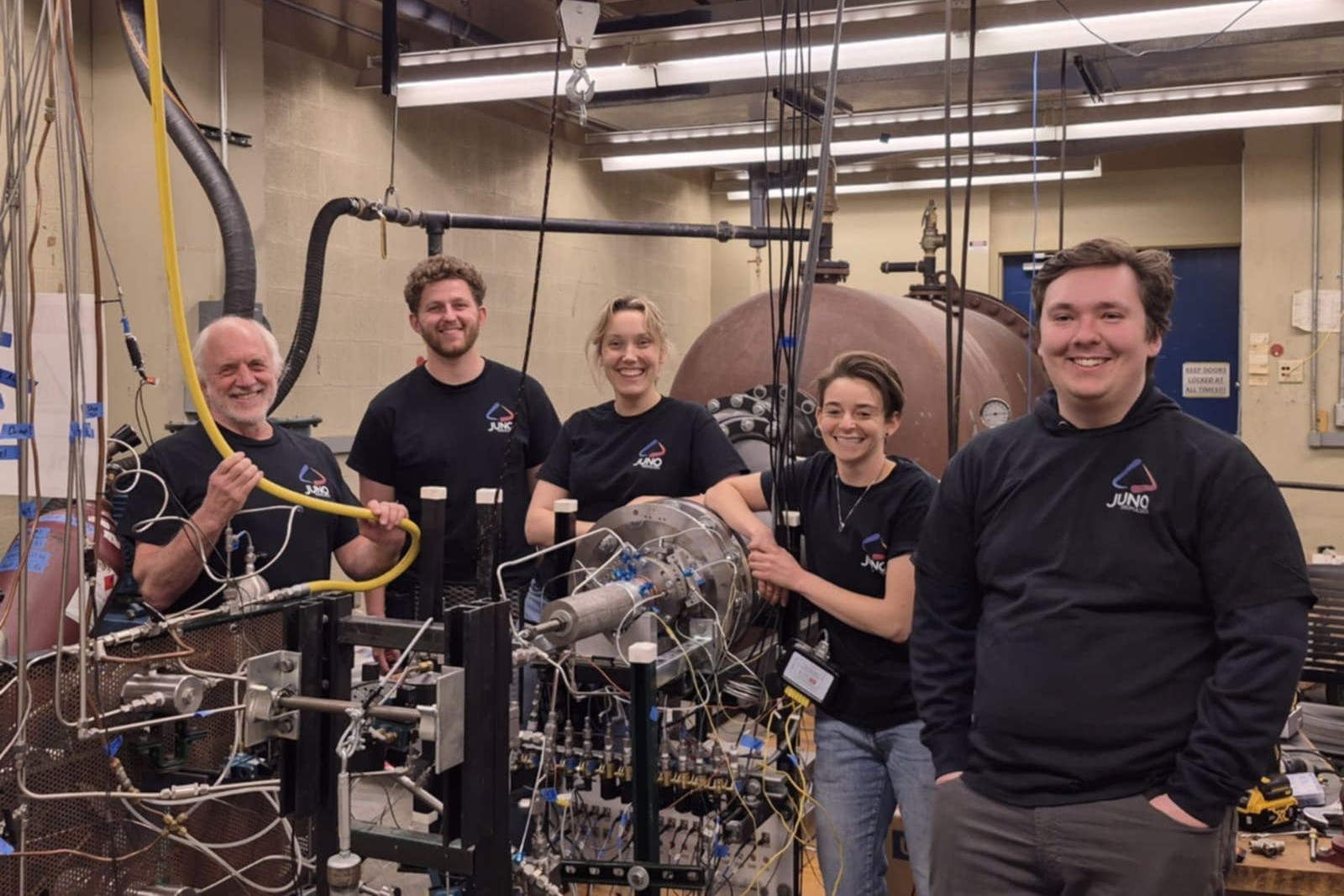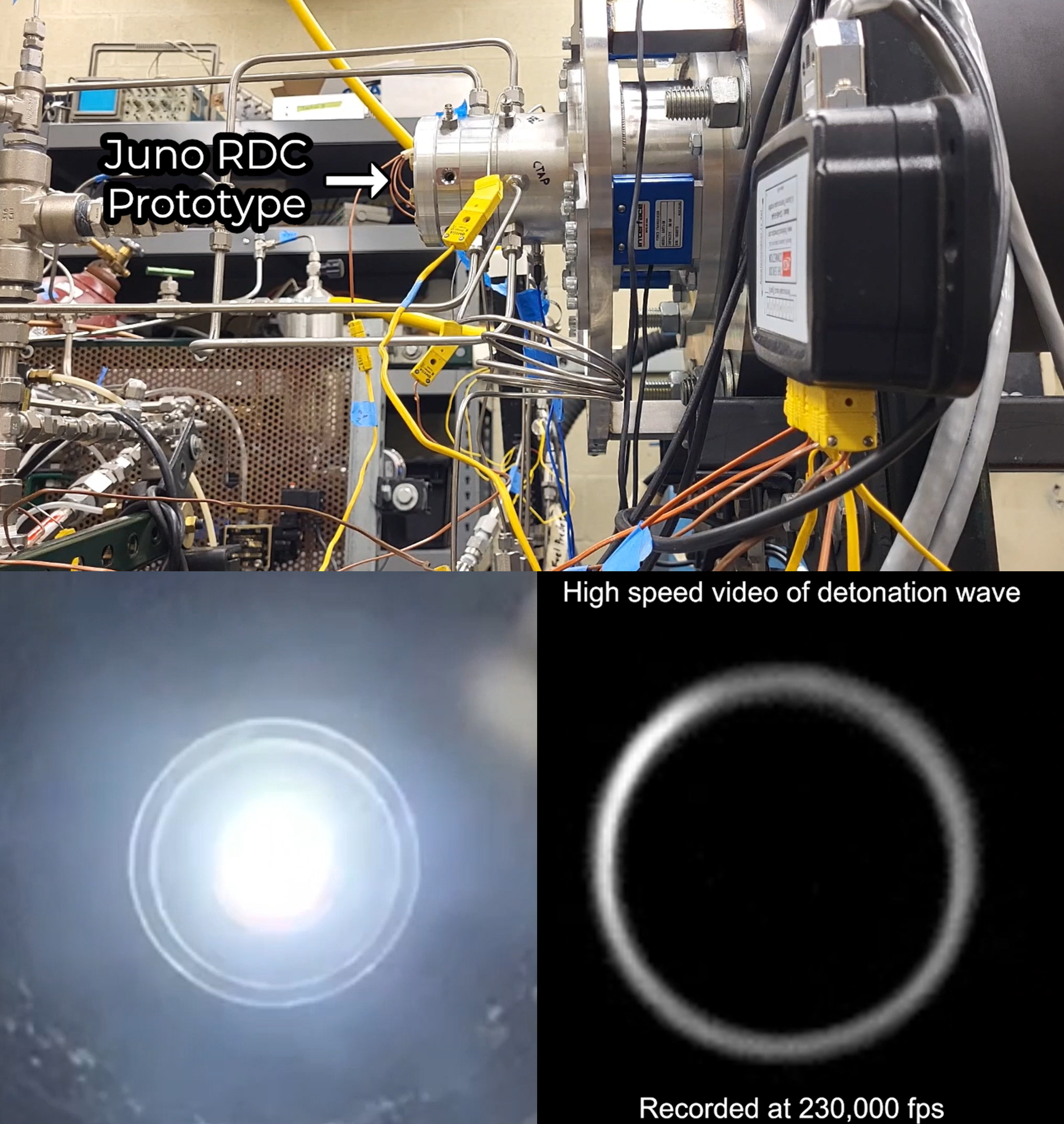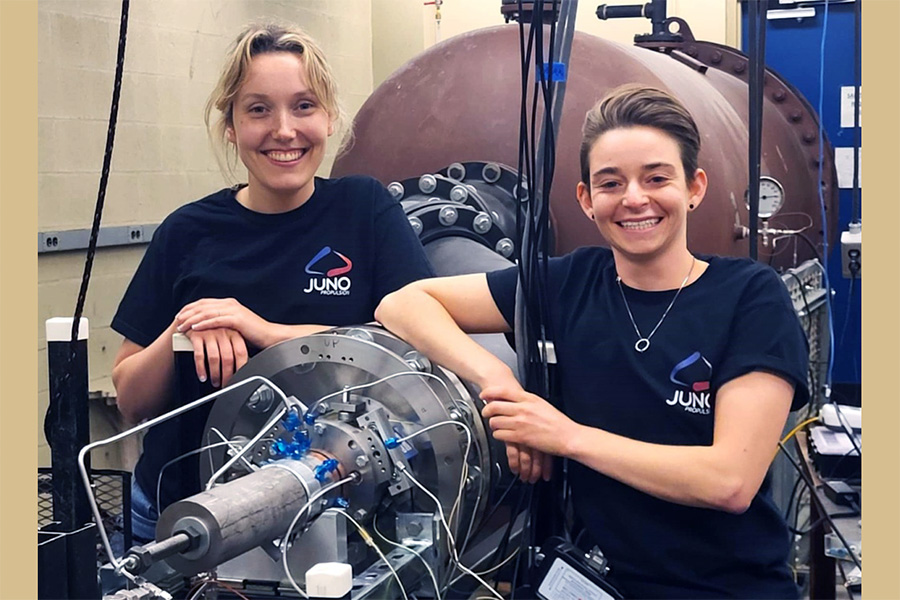Purdue Alumni-Led Company Could be the First to Test New Rocket Engine Concept in Orbit
Purdue Alumni-Led Company Could be the First to Test New Rocket Engine Concept in Orbit
| Author: | Alan Cesar |
|---|

From left to right: Dr. Carl Knowlen (Research professor at UWash), Ben Cabot (Intern at Juno Propulsion, Purdue undergraduate student), Alexis Harroun (Co-founder and CEO), Ariana Martinez (Co-founder), Ben Fetters (UWash graduate student)
A small Washington-based startup, founded by two Purdue alumni, hopes to be the first organization to ever test a rotating detonation rocket engine (RDRE) in space. The company, Juno Propulsion, has won a NASA TechLeap Prize worth up to $500,000 to further develop their engine design over the next year, culminating in a NASA-funded flight test later in 2026.
“We’re going to build the full propulsion system — everything from tankage to fuel delivery, to thruster and controller,” says co-founder and CEO Alexis Harroun (MSAAE ’19, PhD AAE ’23). “Obviously the thruster is the secret sauce, and we’re putting in all the experience we got at Zucrow into building this.”
Harroun and co-founder Ariana Martinez (BSAAE ‘17, MSAAE ‘19, PhD AAE ‘23) both studied under Purdue’s propulsion legend Steve Heister. "I’m thrilled that my students are able to further their doctoral work in this detonative propulsion technology. We do feel that these types of systems will first appear in space propulsion applications," Heister says.

RDREs are a cutting-edge engine rocket design that promises huge increases in thrust relative to the size of the engine. Smaller engines mean space vehicles can have more capacity for payloads and fuel. Thanks in part to research and collaborations between NASA and Purdue, their practical RDRE applications are closer than ever. Martinez’s PhD work at Purdue included designing and testing a liquid-cooled RDRE, with critical components 3D-printed by NASA. “Ariana’s experience with additive manufacturing has been a really big piece of our product development,” Harroun says.
The current highest-altitude test for an RDRE was by a JAXA sounding rocket on a suborbital trajectory, launched in July 2021. In 2023, NASA’s Marshall Space Flight Center conducted a long-duration ground test of a full-scale RDRE. Juno Propulsion would be the first US-based entity to test an RDRE in space and the first ever to fly one on-orbit.
Juno Propulsion is doing testing and design on this project in collaboration with the University of Washington. The company has also earned funding for rotating detonation engine research through the NSF Small Business Innovation Research (SBIR) and Washington state’s JCATI grants program, and have done other product development work with NASA Marshall. They are hiring for additional roles as they work their way through the stages of their TechLeap funding and expand their engineering offerings. Harroun is thrilled to earn this grant and have the opportunity to send something to space.
“We went to Yellowstone recently with some of our Purdue grad school friends — and when the stars came out at night and we saw satellites orbiting, I was like, ‘Oh my god, we’re gonna be doing that! That’s crazy!’” Harroun says.

Alexis Harroun and Ariana Martinez, co-founders of Juno Propulsion
